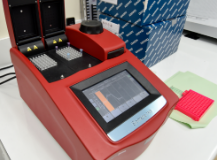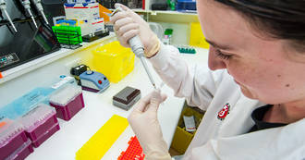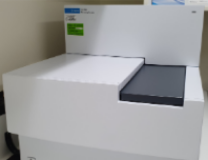





DRPLA is a progressive autosomal dominantly-inherited disorder characterised by ataxia, choreoathetosis and dementia in adults and intellectual deterioration, behavioural changes, myoclonus and epilepsy in children. The choreic presentation is clinically similar to Huntington disease (HD) whilst the ataxic presentation overlaps with the spinocerebellar ataxias (SCAs).
DRPLA has been reported to occur predominantly in the Japanese population; however, molecularly confirmed DRPLA has been reported in other populations including European and North and South American. DRPLA is caused by a CAG triplet repeat expansion in exon 5 of the ATN1 gene, resulting in neuronal intranuclear inclusions, variable neuronal loss and astrocytosis in the globus pallidus, dentate and red nuclei.
Fluorescent PCR-based assays are used to perform this testing. The results can be visualised using GeneMarker software following fragment analysis on a genetic analyser. The possibility of a very large expansion refractory to detection by standard methodology is excluded by the use of a triplet-primed PCR assay when patients are apparently homozygous for a normal allele. Positive and negative controls are included in each assay.
| Test | Cost NZD | Sample requirements | Turnaround time |
| ATN1 CAG repeat expansion test | $200 | 4ml of whole blood in EDTA (lavender top) | 2 - 4 weeks For urgent cases please contact the laboratory |